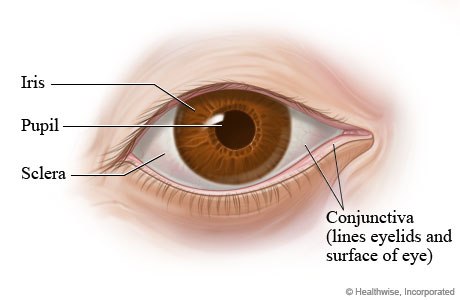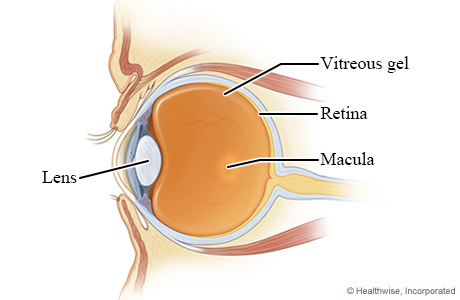

The conjunctiva is the mucous membrane that lines the eyelid and eye surface. In a healthy eye, the conjunctiva is clear and colorless.
The sclera is the tough outer layer of the eyeball (the white of the eye). The slight bulge in the sclera at the front of the eye is a clear, thin, dome-shaped tissue called the cornea. The cornea directs light rays into the eye and helps focus them on the retina.
The pupil is the opening in the colored part of the eye (iris). It allows light to pass to the lens. The iris controls the size of the pupil in response to light outside the eye so that the proper amount of light is let into the eye.
The lens is normally clear and is located behind the iris. Small muscles attached to the lens can change its shape. This allows the eye to focus on near or far objects.
Vitreous gel (also called vitreous humor) is a thick liquid that fills the eye. It helps the eyeball keep its shape.
The retina is a thin nerve tissue that lines the back of the eye. It detects light entering the eye and converts it into electrical impulses. The optic nerve carries the impulses to the brain. The brain interprets the impulses as the things that you see.
The macula is part of the retina. The macula provides the sharp, detailed, central vision that allows you to focus on what is directly in the line of sight. The rest of the retina provides side (peripheral) vision, which allows you to see shapes but not fine details.
Current as of: October 27, 2024
Author: Ignite Healthwise, LLC Staff
Clinical Review Board
All Healthwise education is reviewed by a team that includes physicians, nurses, advanced practitioners, registered dieticians, and other healthcare professionals.